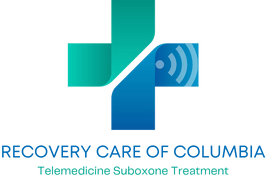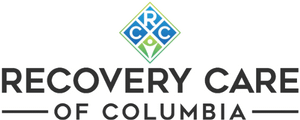Columbia Suboxone Clinic Blog
Opioid Addiction Across Tennessee: Why Are So Many People Affected?
Opioid addiction has become one of the most devastating public health crises facing Tennessee and the United States. For many individuals, the road to addiction begins innocently, with a prescription for pain relief. For others, it starts as an attempt to escape physical, emotional, or psychological trauma. Regardless of how it begins, opioid addiction does not discriminate—it affects individuals of all ages, races, and income levels across Tennessee.
Understanding the reasons people become addicted—and how some avoid it—is essential to addressing the opioid crisis head-on and offering effective paths to recovery.
Why Do People Become Addicted to Opioids?
Opioid addiction rarely begins with the intention of becoming addicted. Here are the most common reasons why people across Tennessee find themselves dependent on these drugs:
1. Pain Relief
Opioids like oxycodone, hydrocodone, and morphine are frequently prescribed to manage acute and chronic pain. They are highly effective at blocking pain signals to the brain, making them a go-to for post-surgery recovery, injury management, or chronic conditions. Unfortunately, their effectiveness also makes them dangerous, especially when used beyond the prescribed period.
2. Euphoria
Beyond pain relief, opioids produce a euphoric high that some individuals find irresistible. The “feel-good” effect can lead to repeated use long after the pain has subsided. Over time, the body becomes dependent on this artificial dopamine boost, leading to addiction.
3. Addictive Nature
Opioids are inherently addictive. They quickly alter brain chemistry, creating both physical and psychological dependency. When the body adjusts to the presence of opioids, users need increasingly higher doses to feel the same effects—fueling a dangerous cycle.
4. Availability
Prescription opioids are widely available across Tennessee, both legally and illegally. Many people first encounter opioids through friends or family members sharing leftover pills, while others obtain them on the street. The ease of access increases the risk of casual experimentation turning into full-blown addiction.
Why Do Some People Avoid Addiction?
Interestingly, not everyone who uses opioids becomes addicted. Some individuals take them as prescribed and stop without issue. Others, however, spiral into dependency. What explains the difference?
1. Genetic Predisposition
Some people have a genetic makeup that makes them more prone to addiction. These individuals may also struggle with self-control in other areas—like alcohol, gambling, or food. If addiction runs in your family, your risk is higher.
2. Personality and Impulse Control
People who don’t typically finish an alcoholic drink or don’t feel the need to “escape” reality are generally at lower risk. They may not experience the same euphoria from opioids or simply lack the compulsion to continue using them.
Additional Risk Factors for Opioid Addiction
Opioid addiction is often the result of more than just drug exposure. Other factors can make individuals more susceptible, including:
-
Mental Health Conditions: Anxiety, depression, and ADHD can lead people to self-medicate with opioids.
-
Trauma: Survivors of abuse—emotional, physical, or sexual—may use opioids to cope with unresolved trauma.
-
History of Substance Abuse: People with a history of alcohol or drug misuse are more likely to become addicted to opioids.
-
Environmental Factors: Peer influence, lack of access to mental health care, and economic hardship all contribute to addiction risk.
How to Avoid Opioid Addiction
Whether you’ve been prescribed opioids or are concerned for someone else, here are essential safety guidelines:
-
Take opioids exactly as prescribed. Never increase your dose without your doctor’s approval.
-
Avoid sharing medications. Even one pill can be addictive or deadly to someone else.
-
Dispose of unused pills safely. Many pharmacies and police stations offer take-back programs. Never flush or trash opioids.
-
Be alert to red flags. If you feel cravings or notice yourself wanting more than prescribed, speak to a healthcare professional immediately.
With fentanyl-laced counterfeit pills becoming more common across Tennessee, the risks of misuse have never been higher. Always verify medications and avoid anything not prescribed directly to you.
Paths to Opioid Recovery in Tennessee
There is hope. Recovery is possible, and there are multiple pathways to get there. Here are the two most common and effective approaches used across Tennessee:
1. Inpatient Treatment
Inpatient programs offer structured environments where individuals live on-site for several weeks or months. These programs provide therapy, group counseling, and relapse prevention strategies.
Pros:
-
Controlled, drug-free environment (living in a “safe bubble”)
-
Immersive education on addiction
-
Access to experienced professionals and peers
Cons:
-
High relapse risk after discharge without follow-up care
-
Time away from work or family
-
Often more expensive than outpatient care
2. Outpatient MAT (Medication-Assisted Treatment)
Outpatient MAT programs—like those offered by Recovery Care—allow patients to remain at home while receiving care. Through regular visits, patients receive Suboxone, counseling, and drug screening. This option is flexible, discreet, and highly effective.
Pros:
-
Same-day access to Suboxone
-
Less disruption to daily life
-
Effective at reducing cravings and relapse
-
Covered by TennCare and many commercial insurers
Cons:
-
Requires personal accountability between appointments
-
Quality of care can vary between clinics
Get Help from Recovery Care
Recovery Care offers telehealth Suboxone treatment across Tennessee, including for patients with TennCare (BlueCare, Amerigroup, United Healthcare, and Wellpoint). As a Joint Commission-accredited and BeSMART-certified provider, we deliver compassionate care tailored to your needs—online, discreet, and judgment-free.
Whether you’re uninsured, on Medicaid, or simply need help fast, our virtual MAT services meet you where you are—no in-person visit required.
If You Live in Tennessee and Have TennCare Insurance
Recovery Care facilities are Joint Commission-accredited and TennCare BeSMART-certified addiction treatment centers who accept TennCare insurance including AmeriGroup, BlueCare, United Healthcare, and Wellpoint Medicaid insurance plans. Patients are treated with kindness and respect while receiving optimal addiction treatment.
Recovery Care is based in Columbia, TN, and serves all of Tennessee through its online TeleMAT Suboxone program. Telemedicine Suboxone treatment is available to anyone who lives in the state of Tennessee, with or without health insurance.
Learn More about Recovery Care
- Read our many five-star Google Reviews from real patients
- Recovery Care Facebook page
- The Joint Commission
✅ Ready to Start?
Choose your path:
You’re not alone. Thousands of Tennesseans have reclaimed their lives—and you can too.



